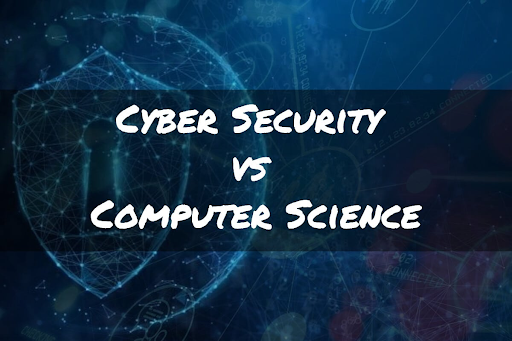Cyber security has become an increasingly important aspect of technology in today's digital world. It is the practice of protecting systems, networks, and programs from digital attacks, theft, and damage. With the rise of cyber threats and attacks, the need for effective cyber security measures has become a top priority for businesses, organizations, and individuals. However, there is often confusion surrounding whether cyber security is a part of information technology (IT) or computer science (CS). In this article, we will explore this question and break down the relationship between cyber security, IT, and CS.
1. History and Purpose
- Cyber security is a relatively new field, emerging in the late 20th century with the growth of the internet and digital technology. It focuses on protecting digital information and preventing unauthorized access, modification, or destruction of data.
- IT, on the other hand, has been around for much longer and encompasses the use of computers, networks, and software to store, retrieve, transmit, and manipulate data. Its purpose is to manage and streamline information within an organization.
- CS is an even broader field that includes the study of computers and computational systems, their theory, design, development, and application. It also covers the algorithms, programming languages, and hardware that enable computers to function.
2. Interconnectedness
- Cyber security, IT, and CS are all interconnected and interdependent. Cyber security relies on IT infrastructure, such as networks and devices, to function effectively. It also requires knowledge from the computer science field to understand and combat cyber threats.
- Similarly, IT could not operate without the principles and techniques developed in CS. It relies on computer science concepts for the development of software, applications, and systems that support organizational processes and operations.
3. Focus and Scope
- While IT focuses on the management and use of technology within an organization, cyber security has a narrower focus on protecting IT infrastructure and data from external threats.
- CS has a broader scope, encompassing the development and application of various aspects of computing, such as software engineering, artificial intelligence, and computer graphics. Cyber security is just one aspect of CS.
4. Skills and Expertise
- Professionals working in IT require a broad set of technical skills, including knowledge of hardware, software, networking, and data management. They also need to be familiar with business processes and organizational dynamics.
- Cyber security professionals, on the other hand, need a specialized skill set that includes understanding security protocols, encryption, and risk assessment. They also need to stay updated on the latest cyber threats and have the ability to anticipate and mitigate potential attacks.
- Computer scientists need a strong foundation in mathematics, algorithms, and programming languages to develop innovative technologies and solutions.
5. Education and Training
- In terms of education and training, IT and cyber security programs may have some overlapping courses but tend to have different core requirements. IT programs often focus on applied skills and practical knowledge, while cyber security programs have a stronger emphasis on theory and technical knowledge.
- CS programs, on the other hand, cover a wide range of topics, including programming, data structures, algorithms, and computer architecture, with some elective courses focused on cyber security.
In conclusion, cyber security, IT, and CS are closely related but distinct domains. They each have their own specific focus, skill set, and educational requirements. While IT and CS provide the foundation for cyber security, it is a specialized area that requires unique knowledge and expertise. Though all three fields play a crucial role in today's technology-driven world, cyber security remains an essential aspect of protecting digital assets and ensuring the security and privacy of individuals and organizations.

